Products
Extra Virgin Olive Oil
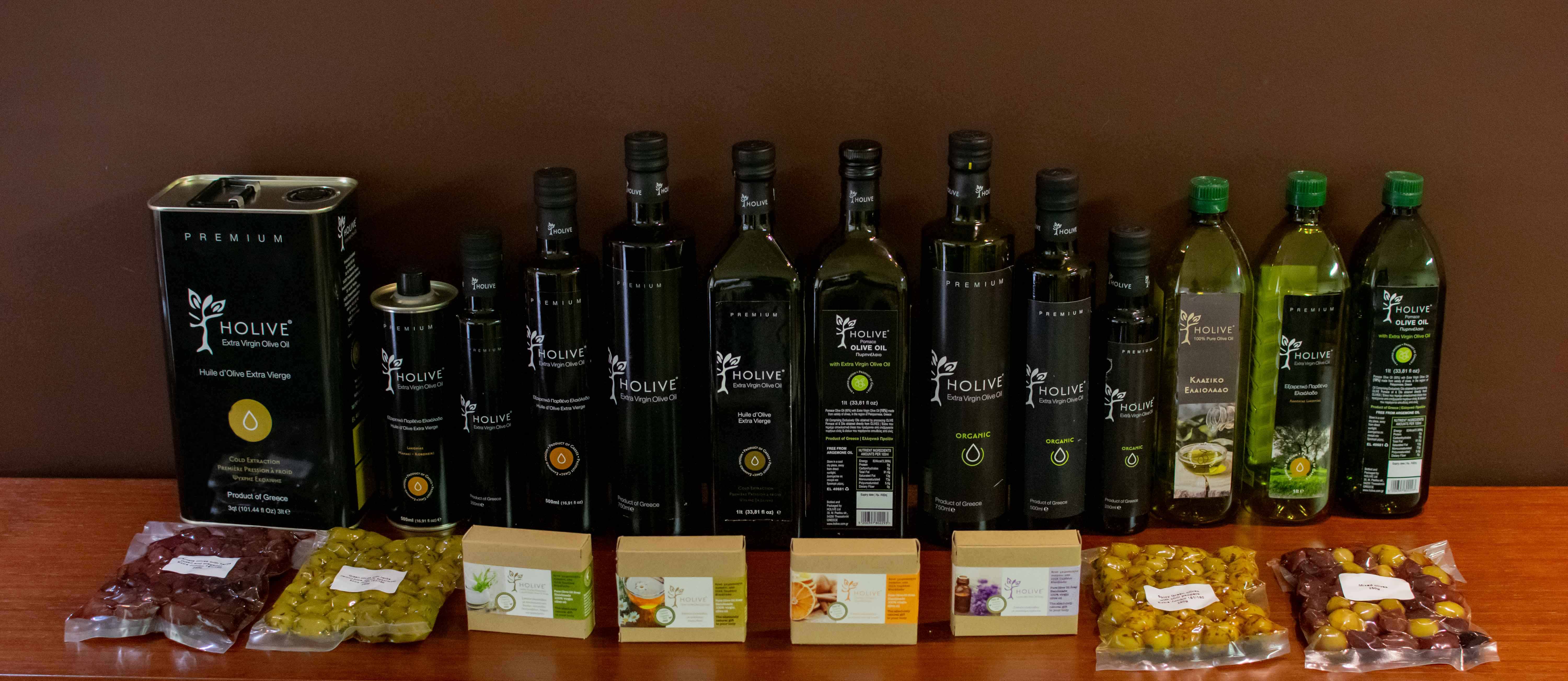
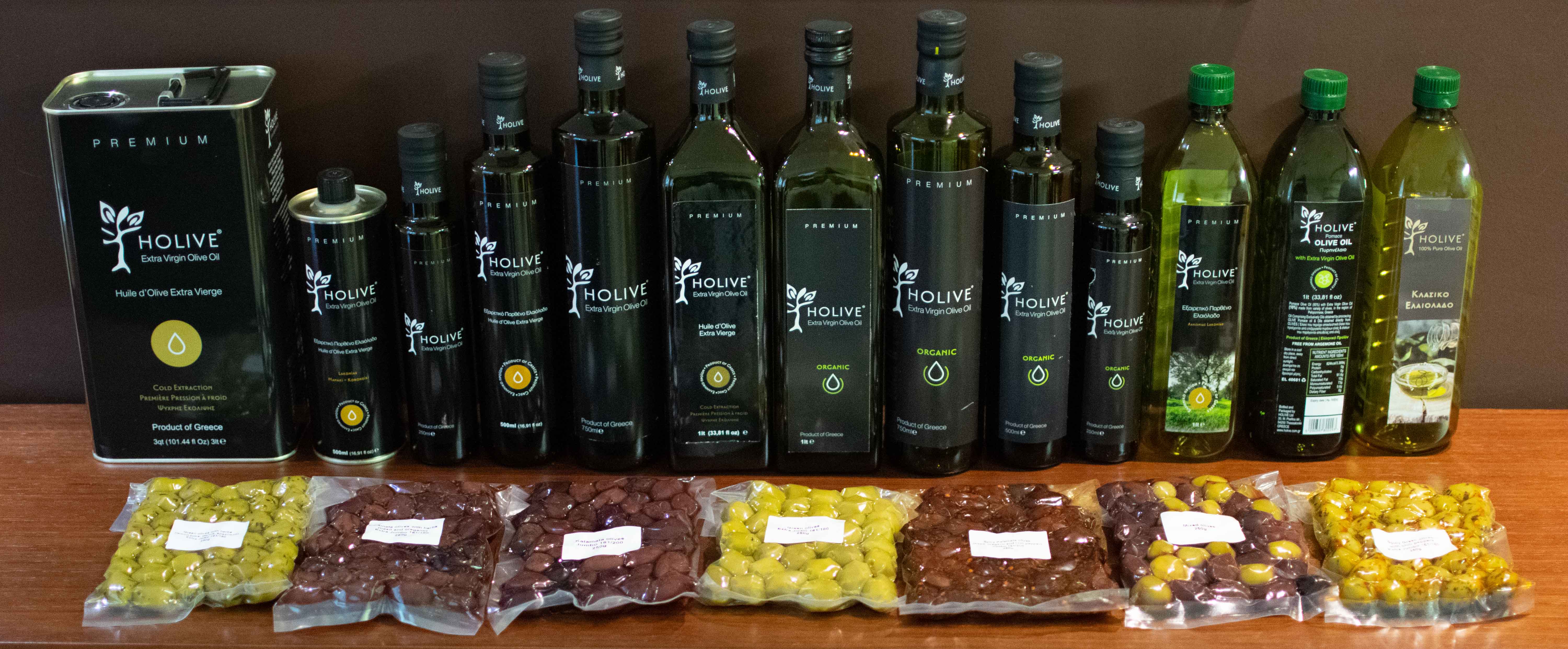

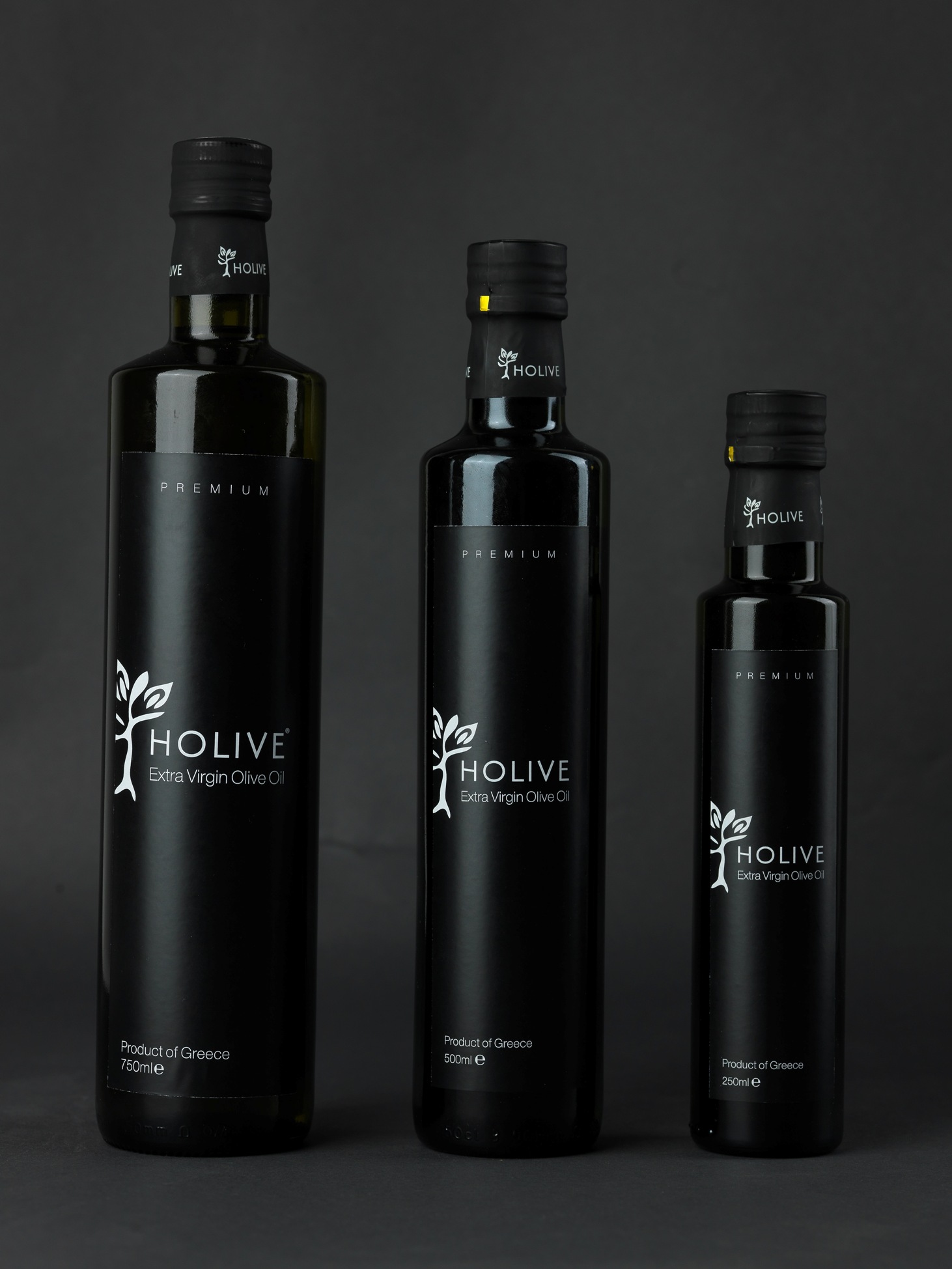
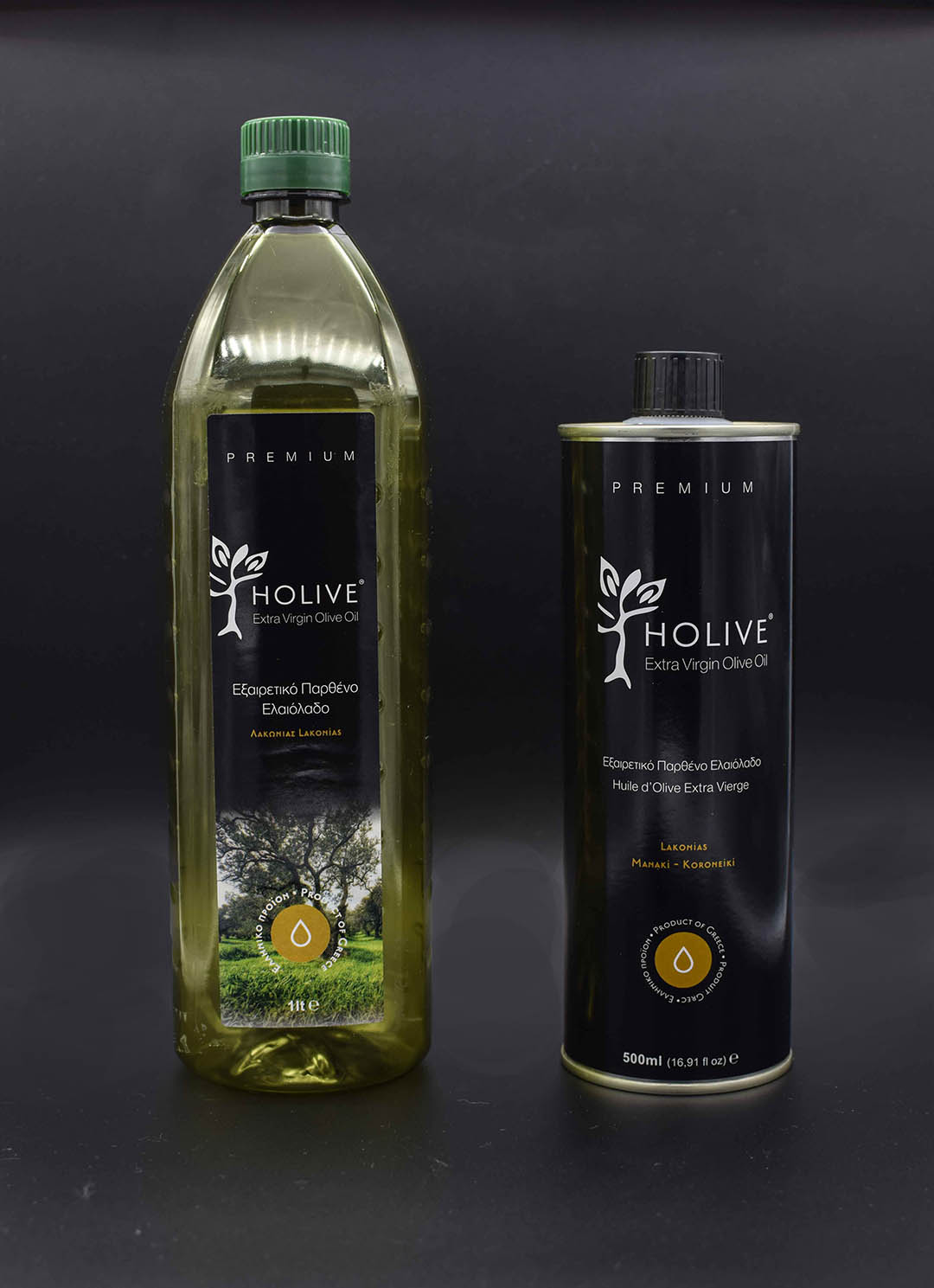
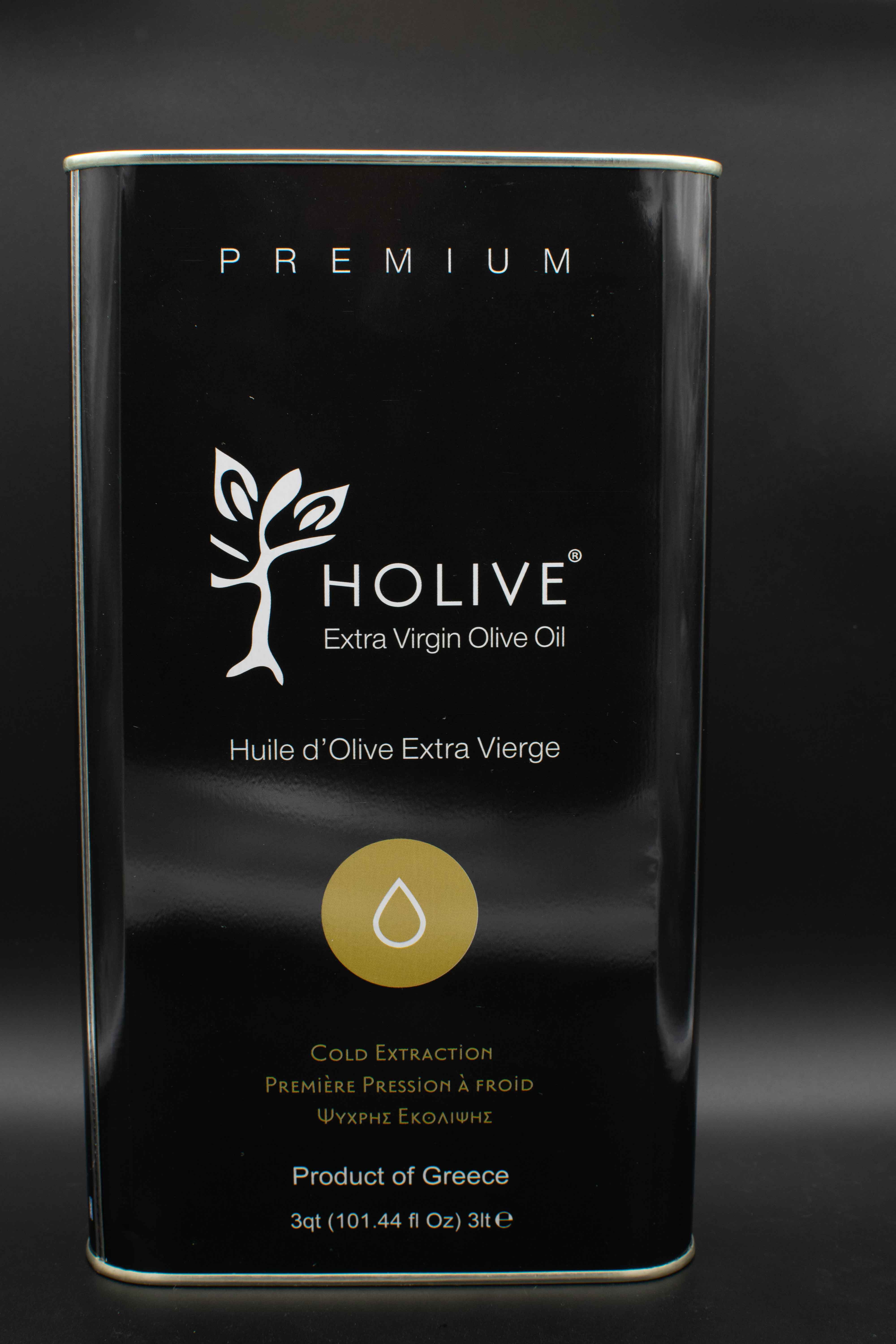
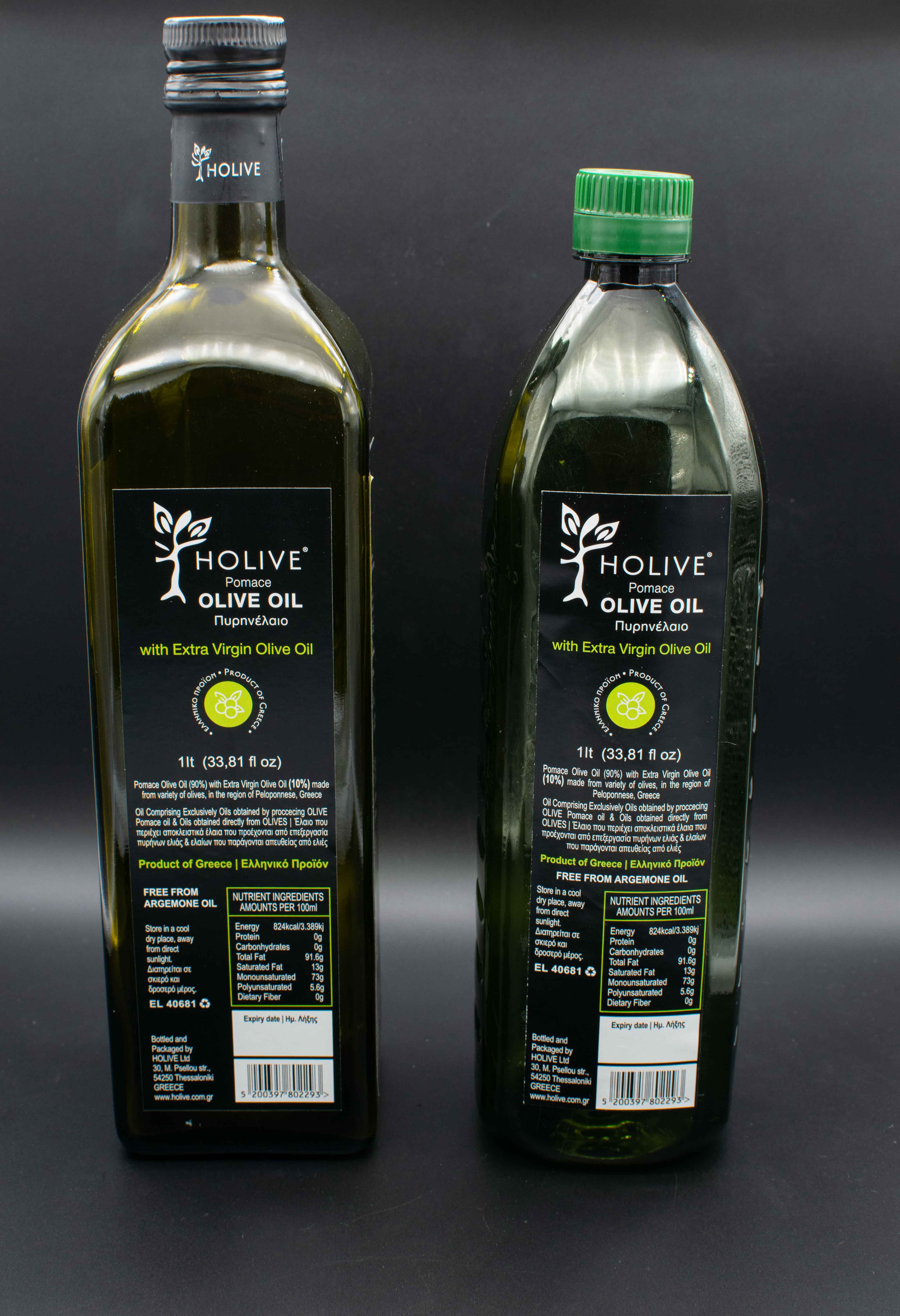
Quality
Our Extra Virgin Olive Oil must be extracted entirely by mechanical means and under the standards for the cold extraction. Besides the continued control of the conditions that the production follows we make additional chemical analysis to testify the quality characteristics by the official laboratories that we cooperate.
Purity
In chemical terms Extra Virgin Olive Oil is described as having an acidity of less than 0,80%. We offer Extra Virgin Olive Oil of acidity that islower than 0,45% making our product even more pure and tasteful.

Olive Oil is the key component of the Mediterranean diet. It offers not only fruity bitter tastes that can elevate all kinds of dishes but also many proven benefits to human health. It is considered a product of a high nutritional value mainly due to its content of monounsaturated fats.
WHY GREEK OLIVE OIL
The greatest advantage of the Greek Olive Oil is its Superior Quality and this is because:
- The Greeks have the longest tradition in the systematic cultivation of olive trees. This tradition goes back to prehistoric times and continues to the present day.
- Greece is the third largest producing country of Olive Oil in the world despite its comparatively small size, dedicating the majority of its arable land to the cultivation of olive trees.
- The climate of the Greek land, the varieties of olive trees and the picking of the olives in traditional ways, give such high quality and such excellent features to the Greek Olive Oil that no other Olive Oil in the world, practically, can have.
- More than 70-80% of the Greek Olive Oil belongs to the category of “Extra Virgin”, the best category of the product in terms of quality and low acidity.
- Greek Olive Oil predominates in colour, aroma and flavour compared to the olive oil produced in other Mediterranean countries.
- The Greek Olive Oil of certified origin and production process has gained a very large number of international awards and is considered to be of Premium Quality internationally.
How to store olive oil
The flavor, aroma and all of the nutritional elements of olive oil can remain stable, if you follow some simple storage guidelines. Light, oxygen and high heat should be avoided.
- Olive oil must not be exposed to light and should be stored in a dark place.
- Oil must not be exposed to temperatures below 5⁰C (41° F) or higher than 20⁰C (68° F).
- It must be stored in a dark glass bottle, a stainless steel or ceramic carafe, or the original can.
- Avoid using plastic containers as olive oil may absorb harmful substances from it, detrimental to human health.
Ways of use and recipes
Olive oil has been used for thousands of years in cooking especially in the healthy Mediterranean diet. It is very versatile and, with its unique flavor and aroma, has become a must-have in every kitchen. Olive oil can be used for sautéing, browning, stir-frying, deep frying, as an ingredient in marinades and sauces such as mayonnaise, pesto, or romesco. It can be used uncooked in fresh salads and as a condiment, drizzled over various dishes. It is appropriate to use it in any kind of food as meat, fish and vegetables.
It is appreciable in taste to apply olive oil on a toasted piece of country bread then adding thinks as a crumbled feta cheese and in a small cut pieces fresh tomato or garlic with basil or just simply olive oil with a small dose of salt and oregano will uplift the taste off the slice of bread. Just use your imagination and you will find a big variety of combinations.
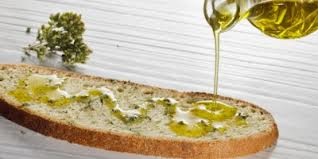

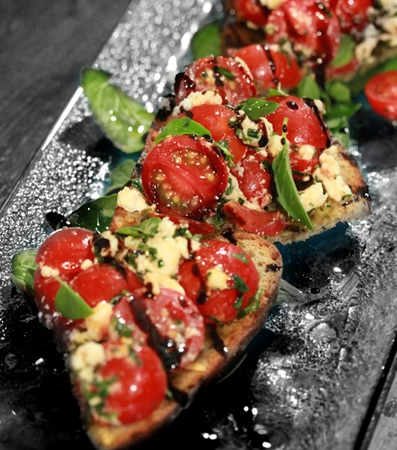
ADVANTAGES
- Olive Oil, especially Extra Virgin Olive Oil has a particularly pleasant and enjoyable taste. More and more people around the world are constantly discovering its particular flavor characteristics. It appears that monounsaturated fats, the kind found in Olive Oil, when replacing saturated fats, may encourage weight loss. Olive Oil consumption has been shown to break down fats inside fat cells, get rid of belly fat (which is the most dangerous kind) and reduce insulin insensitivity.
- Because it is rich in monounsaturated fats and antioxidants, Olive Oil has been shown to help prevent or lessen the effects of cardiovascular disease, diabetes and certain types of cancer as well as a host of other illnesses and conditions.
- Studies have shown that diets rich in monounsaturated fats, (the sort of fat in Olive Oil) can prevent the cognitive decline associated with aging and in diseases like Alzheimer’s. Olive Oil contains vitamins A, D, K and E, which help protect against free radicals and cell oxidation, which can lead to premature aging(for this reason Olive Oil is the major ingredient for beauty masks not only for the face but also for hair, nails and the whole body).
- Studies have shown that the consumption of Olive Oil during pregnancy can improve a child’s psychomotor reflexes and give them other developmental advantages.
- Olive Oil can act as a natural painkiller. It contains oleocanthal, a substance with anti-inflammatory agents.
- Your circulation will improve and you’ll be able to breathe more easily. Olive Oil can increase blood flow and help lessen the effects of illnesses, such as asthma, through its anti-inflammatory properties.
- Olive Oil contains high levels of antioxidants, including polyphenols, vitamins E, chlorophyll and carotenoids. Antioxidants are the key to strengthening the immune system and protecting the body.
- Olive Oil contains Omega 3 fat acids having advantages that are undoubted.
SCIENTIFIC STUDIES
Extra Virgin Olive Oil has been studied by several scientists who have reached the conclusion that it is a kind of food essential to human health and well being.
THE STUDY OF THE 7 COUNTRIES
This study began shortly before 1960 by the American Ancel Keys and his associates on the occasion of the impressively low mortality rates and cardiovascular diseases that were observed in the area of Crete.
What Ancel Keys and his associates studied was the particular eating habits that characterized this region in order to explain the lower incidence of coronary heart disease and cancer and also the low all-cause mortality compared to the other selected countries under investigation. According to UN figures no other region of the Mediterranean has had such low levels of mortality as Crete, both before and after, the World War II.
The study involved a total of about 13,000 men, who were selected from sixteen different areas of seven countries (Finland, the Netherlands, Japan, United States, Italy, Yugoslavia and Greece) in order to explore the ambiguous relationship between diet and cardiovascular diseases.
The comparisons between different populations showed that the population of Crete had a better health status and lower mortality rates of coronary heart disease and cancer, compared to all other populations studied.
After 20 years of observation, Cretans had smaller percentages of all-cause deaths, while after 25 years of monitoring deaths from coronary heart disease in Crete, it was concluded that they were dramatically fewer than the deaths observed in populations of the United States and Northern Europe but even compared to deaths observed in other parts of southern Europe, such as Italy, Yugoslavia and Japan.
THE STUDY “LYON HEART”
After the study of the 7 countries, the French researchers Serge Renaud and Michel de Longeril conducted the “Lyon Heart Study” which showed that administration of Cretan-type diet in patients who had suffered acute myocardial infarction reduced the rate of death within 27 months after the episode by 70 %, compared to administration of the diet recommended by the American Heart Association. Furthermore, after 4 years the Cretan formula diet was associated with a decrease in the percentage of all deaths by 56% and a decrease in the incidences of cancer by 61%.
THE EUROPEAN STUDY EUROLIVE (The effect of olive oil consumption on oxidative damage in European populations)
This particular study, which was conducted in 2006, presented proven evidence of the protective role of phenolic compounds of olive oil. The participants of the study, 200 healthy volunteers from all over Europe, took part in several experiments which were conducted by scientists for the sake of the study. The results of the experiments showed that daily consumption of 25 ml of olive oil rich in phenolic compounds (Virgin Olive Oil) resulted in protection against oxidative stress. Specifically, after three months of Virgin Olive Oil consumption, scientists observed an increase in HDL levels (good cholesterol) and a decrease in lipid rates of oxidative stress. Moreover, the same study showed a decrease in rates of DNA oxidation at a range of 13% - a rate comparable to the results observed after quitting smoking.